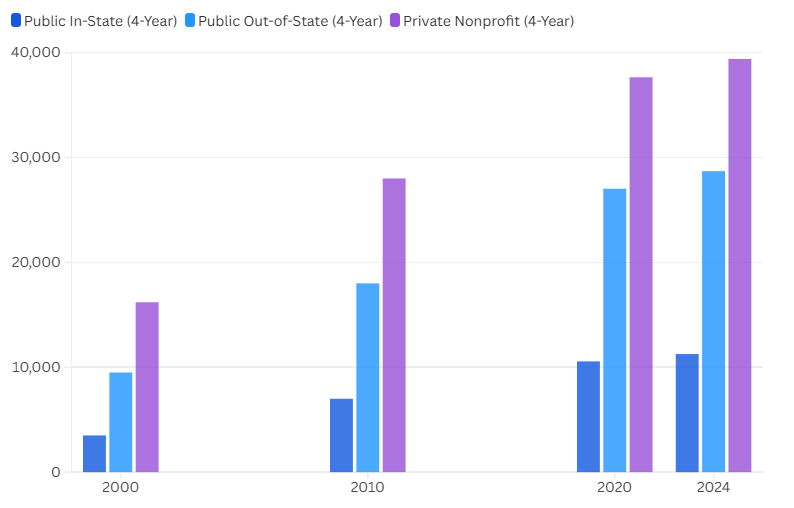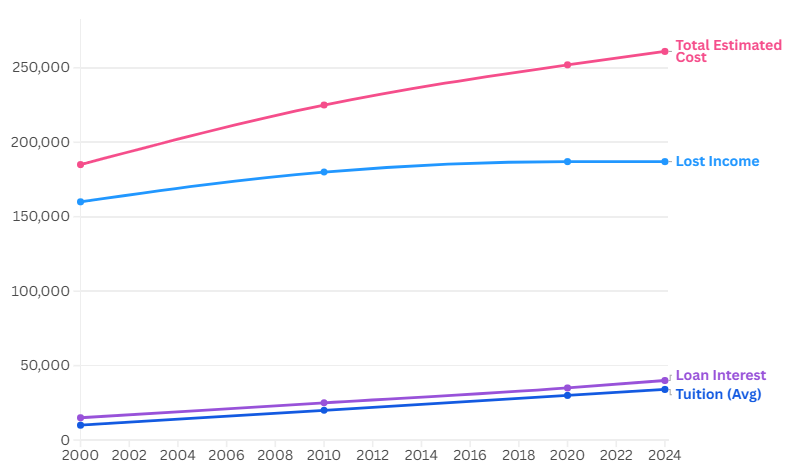For a lot of college students, scholarships represent a lifeline, easing some of the financial burdens they face on their academic journey. Scholarships alleviate the financial strain and contribute to students’ overall well-being. According to The Education Data Initiative, the average cost of college in the United States is $38,270 per student per year, including tuition and fees. Students can pay around an average of $400,000 for a bachelor’s degree, considering student loan interest and loss of income.
Amaya Allen, a Junior student at Old Dominion University studying Health Services Administration, is a clear representation of the transformative power of scholarships. She shared how the support from a scholarship not only eased her financial burden but also preserved her health and academic journey.
Amaya experienced a significant improvement in her mental health due to a scholarship. She expressed, “I will say that my mental health has definitely increased. I get to rest more peacefully, knowing that my tuition is paid for and that I don’t have to work so hard.“ This highlights the profound relief that scholarships can bring, both financially and mentally.
For students without steady financial support, covering books, housing, transportation, and food costs can create a daily burden. Amaya recalled how money was tight before receiving aid.
Before receiving a scholarship, Amaya was under significant financial stress. She shared, “Before the scholarship, I will say I was stressed financially about paying tuition, paying for textbooks, and buying groceries“. This underscores the crucial role of scholarships in alleviating financial stress and promoting mental well-being.
National data reinforces her experience. In a 2023 survey by the National Postsecondary Student Aid Study (NPSAS), 23% of undergraduate students and 12% of graduate students experience food insecurity, affecting over 4 million students. Additionally, 8% of undergraduate students and 5% of graduate students are experiencing homelessness, which amounts to over 1.5 million students. Without proper nutrition or a safe living space, students face barriers in the classroom and everyday life.
Makendra Crosby, a grad student at ODU studying data science analytics, agrees that scholarships do more than just pay tuition.
“Scholarships have changed how much I work. I used to work full time, but now that I have my scholarships, I can work part-time, and now I have more time for homework and extracurricular activities“.
She said that once she had help covering her costs, she could reduce her work hours and refocus on her physical and mental health.
“I can better focus on my classes and studies now because of my scholarship because I don’t have to worry about money as much, and it gives me peace of mind knowing that I don’t have to worry about it again“.
Scholarships often allow students to reclaim their time—they would otherwise spend working multiple jobs just to get by. That extra time can lead to healthier sleep schedules, more balanced meals, and increased campus engagement. Stress, financial pressure, and poor mental health are key factors affecting college performance nationwide.
Beyond the personal impact, scholarships play a crucial role in student retention. According to a FundsforNGOs (Grants and Resources for Sustainability), financial aid, including scholarships, alleviates financial burdens, supports low-income students, promotes equal opportunities, and fosters diversity. Ultimately, it enhances economic mobility and invests in society’s future.
Still, both Amaya and Makendra said applying for scholarships isn’t always simple. The process could be more straightforward and visible for students in need. Makendra mention
“I don’t think a lot of people know that ODU has a lot of scholarships available because it is not advertised as it should be. I believe we have a website for it, but most people don’t know about it“.
Some scholarships go unclaimed every year due to a lack of awareness. That’s why ODU and many universities are expanding outreach through scholarship databases, financial aid workshops, and one-on-one advising.
Students like Amaya and Makendra demonstrate that scholarships are not just academic awards; they are crucial investments in a student’s overall well-being. Makendra actively encourages her peers to seek support while searching for financial aid opportunities.
“My advice for other students looking for scholarships would be not to be afraid to ask for help. Talk to your advisor to see what options are available, and also go to the financial aid department to see what they may provide.”
Sources
Average Cost of College [2025]: Yearly Tuition + Expenses
Why Financial Aid is Important for Students of All Backgrounds – Funds for Individuals
Tuition Costs by Year and Institution Type

Rising Costs of Higher Education: The Total Financial Impact of Earning a Bachelor’s Degree (2000–2024)


Leave a Reply